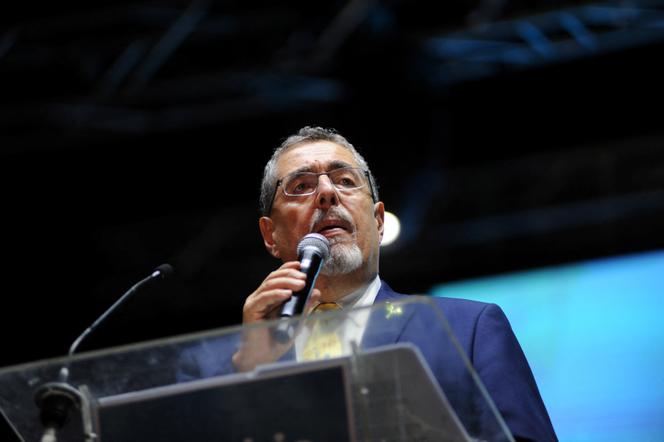


In the fragile, imperfect democracy of Central America's most populous country, an unexpected run-off election is taking place on Sunday, August 20, to choose Guatemala's next president. It will pit Bernardo Arevalo, 64, of the Semilla ("seed," center-left) movement, who took observers by surprise by coming second (with 11.77% of votes cast) on June 25, in the first round, against Sandra Torres, 67, of the conservative National Union of Hope, who had obtained 15.86 % of the vote. On Thursday, a final poll by the daily Prensa Libre gave Arevalo a clear 30-point lead.
Launched eight years ago during the anti-corruption protests that led to the fall of president Otto Pérez Molina (2012-2015), Semilla had until then only been a secondary and rather urban party. In the first round of these 2023 elections, it made headway in all territories, putting forward progressive and environmentalist proposals, campaigning mainly on social networks due to a smaller budget than its opponents.
Already an unsuccessful finalist in the 2015 and 2019 elections, Torres is the widow of former president Alvaro Colom (left, 2008-2012). Labeled a social democrat for several years, Torres has tilted her campaign to the right. "I'm going to declare delinquents 'terrorists', militarize the prisons and we're going to increase the number of police officers to 70,000," she asserted during a televised debate last Monday. In a country marked by corruption, violence and poverty, she said she was determined to "attack drug traffickers head-on" and "increase the penalties" for them. The candidate reiterated her vision of a society based on the traditional family and castigated "gender ideology."
Torres also promises to create a program to help the poorest families with a basket of basic foodstuffs, but without raising taxes. "Milk, oil, sugar, rice and beans: We will provide enough to guarantee three meals a day," she claimed. According to the UN, poverty affects 58% of the population, and almost one child in two suffers from chronic malnutrition in this country of 17.6 million inhabitants.
Her opponent, former founder of a parliamentary commission on the subject, has made the fight against impunity and institutional corruption one of his campaign's strong points. "Criminals are active in this way because they operate within the framework of corrupt governments, where they can buy public servants, judges, police and the military," saidArevalo. Guatemala ranks 150th (out of 180 countries) in Transparency International's corruption perceptions index. Semilla's candidate accused his opponent of having formed "an alliance with [outgoing president Alejandro] Giammattei" and denounced the "black campaign" to which he feels he has been subjected by his opponent and the institutions.
You have 38.23% of this article left to read. The rest is for subscribers only.
